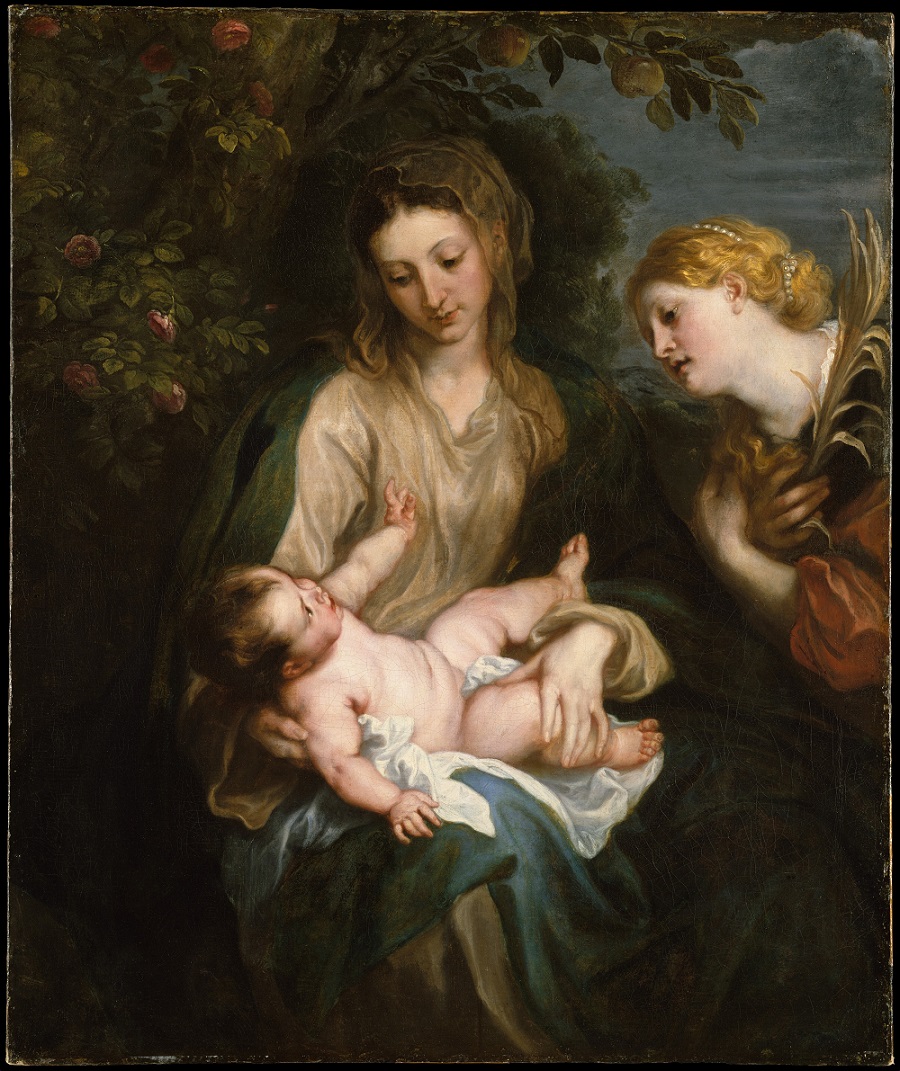Last edited on 10/Jul/2021
The Bible’s Answer
The incarnation of God refers to the historical event, as recorded in the Bible, of when God came down to the Earth as a human being. According to the Bible, Jesus Christ is the incarnation of God (John 1:1, 14). When the Bible says that God became a human being, it isn’t saying that the Father became flesh. God is a Trinity of three Persons: the Father, Son, and Holy Spirit (Matthew 28:19). God the Son, also known as Jesus Christ, is the Second Person of the Holy Trinity, and he was the one who became a human (See: What Is the Holy Trinity?).
The Word Became Flesh
We can see this clearly taught in John’s prologue of his Gospel, which says the following:
In the beginning was the Word, and the Word was with God, and the Word was God. 2 He was in the beginning with God. 3 All things were made through him, and without him was not any thing made that was made. (John 1:1–3, ESVUK)
And the Word became flesh and dwelt among us, and we have seen his glory, glory as of the only Son from the Father, full of grace and truth. (John 1:14)
In verse 1, John distinguishes God the Father from the Word by saying that “the Word was with God”, that is, the Word was with the Father. He then says that at the same time “the Word was God”, that is, the Word was of the same substance as the Father, yet distinct from him in personhood. Then at verse 14, he identifies the Word as Jesus Christ in his pre-incarnate form. This tells us that Jesus Christ pre-existed before he came to Earth.
But Jesus didn’t pre-exist as a human, nor was he called “Jesus” in his pre-existence. According to this passage, he was called “the Word” and existed as a spirit just like God the Father and God the Holy Spirit. We also know that his existence never had a beginning, since verse 3 tells us that all created things owe their existence to Jesus Christ, the Word.
The Virgin Birth
God the Son, or the pre-existent Word, assumed a human nature in the womb of the Virgin Mary, by means of the Holy Spirit (Luke 1:30–35). He was born in a manger in Bethlehem (Luke 2:4–7), and grew up like any other child, only he was sinless (1 Peter 2:21–22).
But he didn’t cease being God while he walked the Earth. The Apostle Paul wrote that within the one Person of Jesus Christ dwells both a divine and a human nature simultaneously (Colossians 2:9). This means that Jesus is both truly God and truly human, a doctrine that Christian theologians call the Hypostatic Union.
Jesus Became a Human in Every Respect
The Word (or the Logos) and the man Jesus Christ are not two different persons, but the same person, who has both a human and divine nature. This means that although Jesus has all of the essential qualities of God almighty himself, he also possessed all of the essential qualities and limitations of a human being when he walked the Earth in his human body. This was what the author of Hebrews wrote concerning Jesus’ incarnation:
Since therefore the children share in flesh and blood, he himself likewise partook of the same things, that through death he might destroy the one who has the power of death, that is, the devil, 15 and deliver all those who through fear of death were subject to lifelong slavery. 16 For surely it is not angels that he helps, but he helps the offspring of Abraham. 17 Therefore he had to be made like his brothers in every respect, so that he might become a merciful and faithful high priest in the service of God, to make propitiation for the sins of the people. (Hebrews 2:14–17)
This was the only reason why Jesus was able to suffer and die for our sins on the cross, because if he had not taken on a human nature, he would have been incapable of dying. According to his divine nature, he is immortal, but according to his human nature, he was mortal. Therefore, the objection which states that “if Jesus were really God, he couldn’t have died”, which is often raised by non-Christian cultists and other non-believers, is invalid, because it was his human nature that died, not his divine nature.
Jesus Will Always Be a Human
To this day, and forevermore, Jesus will always have a human body, because he holds his priesthood (as the Intercessor between God and humankind) forever (Hebrews 7:20–25). However, ever since Jesus’ resurrection from the dead (1 Thessalonians 1:10), he is no longer hindered by the limitations of being a human.
Jesus Humbled Himself in the Incarnation
The Bible teaches that Jesus’ incarnation was a very humbling event. The Apostle Paul wrote about this, saying that the whole purpose of God the Son’s life on Earth was to die for the sins of all people on the cross:
Have this mind among yourselves, which is yours in Christ Jesus, 6 who, though he was in the form of God, did not count equality with God a thing to be grasped, 7 but made himself nothing, taking the form of a servant, being born in the likeness of men. 8 And being found in human form, he humbled himself by becoming obedient to the point of death, even death on a cross. (Philippians 2:5–8)
According to this passage, Jesus could have clung to the honour and privileges that were his as God’s equal, but instead he made the conscious decision to make himself nothing, which literally means that he emptied himself.
Jesus did not empty himself of any of his divine powers or authority, but he emptied himself in the sense that he, the eternal Son of God, enthroned in Heaven, took upon himself the humiliation of human flesh and the position of a humble servant, and abstained from using his divine majesty except when it pleased him to do so. Jesus did this so that by his perfect obedience to the divine Law he might satisfy divine justice and become a perfect sacrificial offering on the cross to atone for all our sins and propitiate God’s wrath against us.
Jesus Became Poor So That We May Become Rich
Paul says this another way in his second letter to the Corinthians, teaching that though Jesus was rich, yet for our sake he became poor so that by his poverty we might become rich (2 Corinthians 8:9). The Lord Jesus Christ descended into this world as a human being, subjecting himself to the same things we suffer from, and the same temptations we face, in order to bless us with the richness of his grace and mercy, by which alone we must be saved (Acts 15:11).
The Incarnation Shows Us God’s True Love
The incarnation of Jesus Christ shows us how great God’s love is for all people. God loved us so much to the point of stepping down from his heavenly throne to become one of us, and lay down his own life for our salvation (Acts 20:28; Titus 2:13–14). It also shows us that God can empathise with us. Since God was subject to the exact same things we suffer from in this world, and dealt with the same issues we face while he walked the Earth, he is also able to sympathise with our weaknesses, and show us understanding and compassion when we are upset, angry, or confused (Hebrews 4:14–16).
Conclusion
Thus, in the incarnation, we see the true beauty and magnificence of the eternal God, who is not only the source of all goodness and life, but who also understands and relates to us perfectly, and who purchased us from our sinful ways by his own precious blood. Jesus offers the free gift of everlasting life to everyone and gives it to all who believe in his name (John 11:25–26).






